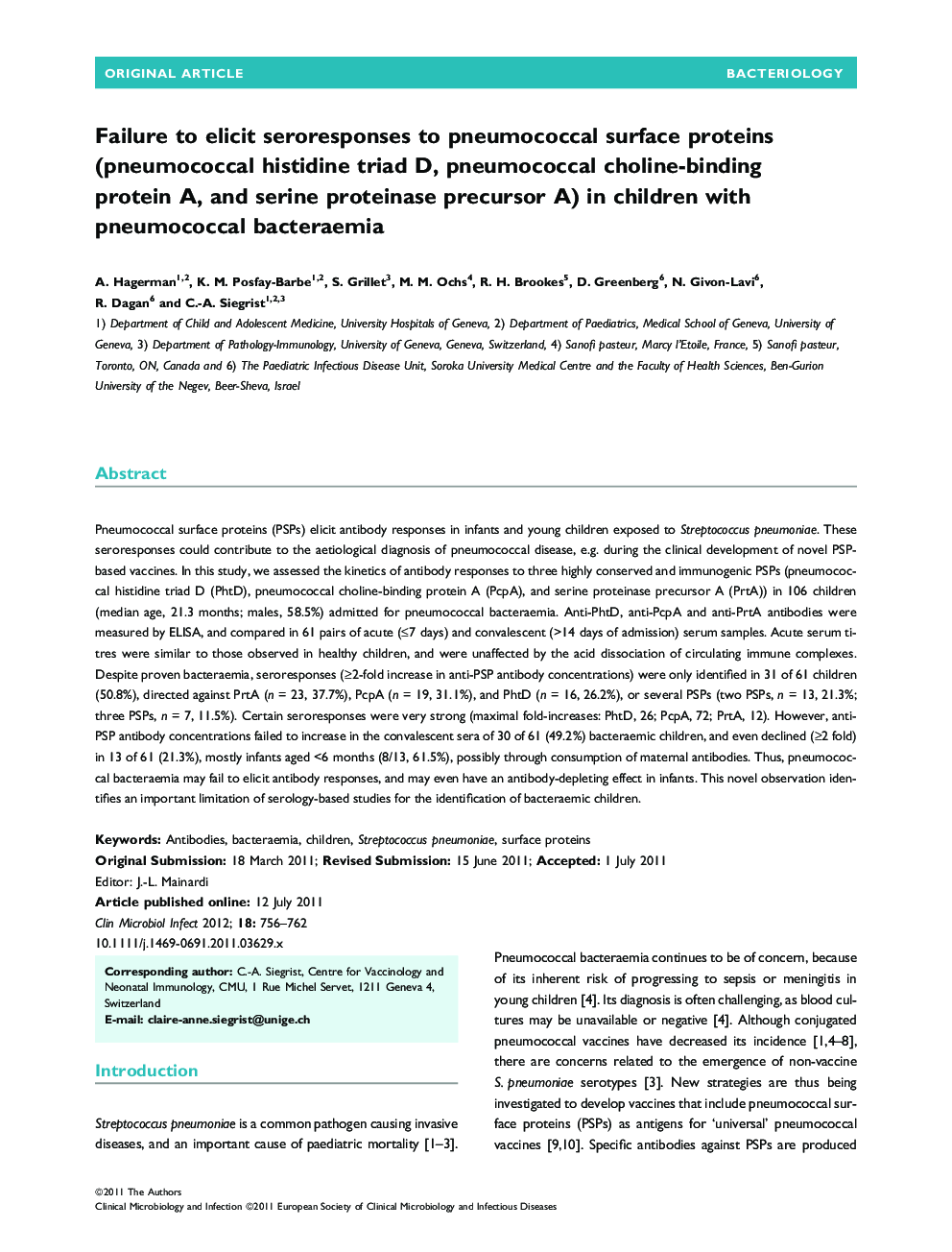| کد مقاله | کد نشریه | سال انتشار | مقاله انگلیسی | نسخه تمام متن |
|---|---|---|---|---|
| 3396883 | 1222199 | 2012 | 7 صفحه PDF | دانلود رایگان |

Pneumococcal surface proteins (PSPs) elicit antibody responses in infants and young children exposed to Streptococcus pneumoniae. These seroresponses could contribute to the aetiological diagnosis of pneumococcal disease, e.g. during the clinical development of novel PSP-based vaccines. In this study, we assessed the kinetics of antibody responses to three highly conserved and immunogenic PSPs (pneumococcal histidine triad D (PhtD), pneumococcal choline-binding protein A (PcpA), and serine proteinase precursor A (PrtA)) in 106 children (median age, 21.3 months; males, 58.5%) admitted for pneumococcal bacteraemia. Anti-PhtD, anti-PcpA and anti-PrtA antibodies were measured by ELISA, and compared in 61 pairs of acute (≤7 days) and convalescent (>14 days of admission) serum samples. Acute serum titres were similar to those observed in healthy children, and were unaffected by the acid dissociation of circulating immune complexes. Despite proven bacteraemia, seroresponses (≥2-fold increase in anti-PSP antibody concentrations) were only identified in 31 of 61 children (50.8%), directed against PrtA (n = 23, 37.7%), PcpA (n = 19, 31.1%), and PhtD (n = 16, 26.2%), or several PSPs (two PSPs, n = 13, 21.3%; three PSPs, n = 7, 11.5%). Certain seroresponses were very strong (maximal fold-increases: PhtD, 26; PcpA, 72; PrtA, 12). However, anti-PSP antibody concentrations failed to increase in the convalescent sera of 30 of 61 (49.2%) bacteraemic children, and even declined (≥2 fold) in 13 of 61 (21.3%), mostly infants aged <6 months (8/13, 61.5%), possibly through consumption of maternal antibodies. Thus, pneumococcal bacteraemia may fail to elicit antibody responses, and may even have an antibody-depleting effect in infants. This novel observation identifies an important limitation of serology-based studies for the identification of bacteraemic children.
Journal: Clinical Microbiology and Infection - Volume 18, Issue 8, August 2012, Pages 756–762